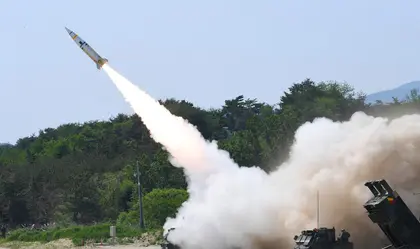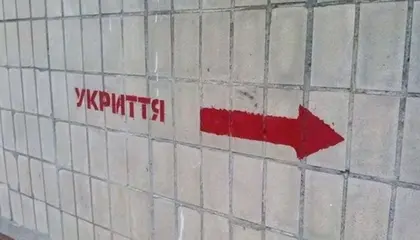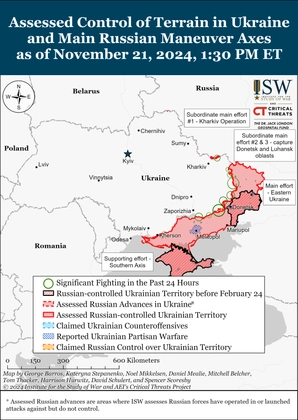Kyiv authorities are facing difficult questions after reports emerged that three people killed during the latest nighttime attack by Russia died while trying to gain access to a bomb shelter that was closed.
A nine-year-old girl, her mother and another woman were struck by debris from an intercepted rocket after leaving their apartments to seek refuge in the nearest shelter, located in a Polyclinic, in the Desnyanskyi district of the capital.
JOIN US ON TELEGRAM
Follow our coverage of the war on the @Kyivpost_official.
"There was an alarm, people were running for the shelter,” Yaroslav, the husband of one of the dead women told Suspilne TV channel. “The shelter just wasn't opened, that's all.
“People were knocking, knocking for a very long time. There were women, children, but no one opened it.”
Ukrainian MP and Head of the Committee on Foreign Policy, Oleksandr Merezhko, told Kyiv Post: “Because of yesterday’s tragic event, we have started a discussion on what should be immediately done to prevent it from happening again.
“All necessary measures will be taken. Bomb shelters should be open around the clock.”
But what exactly happened is the subject of some debate, with conflicting reports emerging.
Serhiy Popko, the head of Kyiv Сity’s Military Administration, in an interview with Radio Svoboda, stated at the scene of the tragedy that one of the shelter entrances was open and people were inside. However, local residents insisted that all the shelter doors were closed.

Eurotopics: Ukraine Hits Russian Target with US Missiles
Mykhailo Shamanov, Serhiy Popko's spokesman, told Kyiv Post that the testimony of residents of the house and rescuers were different.
"The husband of the deceased woman said that they tried to get into this shelter and it was closed. But according to the State Emergency Service officer who was on the spot, after the explosion, rescuers began to take people out of hiding [in the shelter]. That is, some people may have got there," Shamanov said.
"The investigation should interview all witnesses and draw at least some preliminary conclusions about what happened. We cannot now lean towards any version until the investigators complete at least a preliminary investigation," he added.
According to the Mayor of Kyiv Vitali Klitschko, a fragment of a rocket struck the entrance of the medical facility merely four minutes after the air alert was announced.
"Now the investigation is establishing whether the shelter was open. Whether there were people in it. Because, according to rescuers, after the damage to the Polyclinic, a group of people was taken out of it," Mayor Vitali Klitschko shared on his official Telegram channel.
In the wake of the tragedy, authorities are trying to ascertain who was responsible for making sure the shelter was open during an air raid.
Popko's spokesperson also stated that only two people might be responsible for the shelter's operation.
"Regarding shelters, two individuals are responsible for each shelter. If it is a private shelter, the facility owner is held accountable. For municipal institutions such as schools, kindergartens, or hospitals, the responsibility lies with the head of the respective institution. At higher levels, the head of the district state administration serves as the second responsible party," Shamanov said.
Mayor Klitschko echoed Popko's office statement on those responsible for the shelter operation, claiming that the head of the local medical institution and the head of the district share responsibility, emphasizing that decisive actions would be taken promptly.
Roman Tkachuk, a representative of the Municipal Security Department of the Kyiv City State Administration, responsible for the network of shelters in the capital, in an interview with Radio Svoboda, claimed not to have received any complaints regarding protection in the Desnyanskyi district, where the fatalities occurred.
The Kyiv Post also contacted Roman Tkachuk's office for his personal assessment of the situation. The department could not provide an immediate response but assured that all inquiries would be addressed during a briefing on Friday, June 2.
Subsequently, the Mayor's office announced that the patrol police of Kyiv would henceforth oversee the functioning of shelters during the curfew and air alerts. They will conduct regular checks on the shelters indicated on the city map, ensuring there is access. Any pertinent information will be promptly relayed to city services.
Simultaneously, Klitschko issued a separate directive to the district heads in the capital, instructing them to inspect all shelters promptly.
He also stated his intention to appeal to the Office of the President and the government, urging them to dismiss Dmytro Ratnikov, the head of the Desnyanskyi district, from his position, as well as the administrator of the medical institution, whom the Desnyanskyi district administration appointed.
Despite the explanations from the capital's officials, there is still a debate in social media over the conduct of the mayor’s office.
"The 463rd day of the great war. People are dying on the streets of the capital because the bomb shelter is closed. ‘Suddenly’ it turns out that most citizens simply have nowhere to go during the air raid. Meanwhile, the local authorities are speechless and savor the expensive project of a new bridge. Strange priorities," Olena Shuliak, the head of the Servant of the People political party, has posted on her Twitter.
Interior Minister Ihor Klymenko confirmed that the Kyiv police had initiated criminal proceedings for official negligence which could result in significant consequences, under Part 2 of Article 367 of the Criminal Code of Ukraine.
Does anyone have the right not to let people into a shelter during an air raid?
Yes, it is possible and even legal as it all depends on the so-called balance holder of the house.
*A balance holder is the owner of the relevant property or a legal entity that, under an agreement with the owner, holds the corresponding property on the balance.
Consequently, most new houses in the capital, with underground parking, are private property. Their balance holder is a housing co-op. A housing co-op is a legal entity, which owns real estate consisting of one or more residential buildings; it is one type of housing tenure.
At the same time, old houses are under municipal ownership and are serviced by State Housing services. Being under municipal ownership, those responsible for the house - usually the head of the districts, are obliged to let people in the shelter and keep it open and functioning (if the house has one).
Anton Palyonko, the head of the housing co-op of a multi-storey residential building in the Solomianskyi district, told Kyiv Post that the housing co-op has the right not to let people into the underground parking of a house.
"After the construction of the house has been completed, the developer is obligated to transfer it to the ownership of the service organization. This organization can either be a housing cooperative within the building or a State Housing service.
"If the housing cooperative holds ownership of the house, it has the authority to make decisions regarding the property. In simple terms, the housing cooperative is considered the owner of the house, and it is treated as their private property. They have the right to allow or deny entry as they see fit," Anton Palyonko told Kyiv Post.
"For example, in the case of our house, whenever there is an alarm, the doors are immediately opened to allow people to enter."
Vlad, the parking security guard of the neighboring house, says that the parking lot is not available to people as a shelter. That was the housing co-op’s decision.
"This is private property. Without a court decision, the police have no right to access the parking premises. A couple of months ago, the police arrived, stating that this place was marked as a shelter on the map. Yes, for some reason, the Kyiv City State Administration marked it on the map as a shelter. No one checked the premises, and no one has ever approached the housing co-op. It's all private property, and the mayor's office should have resolved the issue with the housing co-op. But it didn't happen," Vlad told the Kyiv Post.
The problem is not just in the capital
The issue of closed or non-existent bomb shelters poses a significant threat not only to the residents of Kyiv but also to other parts of Ukraine. The Kyiv Post interviewed various volunteers and military personnel who shared their experiences.
Yulia, a volunteer from the recently liberated Izyum, couldn't find a shelter in Vinnytsia on January 14th, the day when a Russian X-22 cruise missile struck a house in Dnipro.
"The air defense system was activated, and I searched for a shelter for 40 minutes. I eventually found one in a building entrance, but it was locked and guarded by dogs," Yulia recalls. She had to seek shelter in a parking lot instead.
Inna, a volunteer from Khmelnytskyi, highlights that in her city, most of the bomb shelters are either locked or nonexistent.
"In our district, the school has been closed since the war began because it lacks a bomb shelter. I am concerned about sending children further away, so my kids have been learning remotely since that time."
Military volunteer Dmitry recounts an incident where, during an air alert in the autumn, people were expelled from a building near the Chernihiv metro station in Kyiv, as the managers claimed that the shelter was exclusively for employees. Shortly after, the shelling began.
"When asked, 'What if people on the street die now?' they responded, 'We would be very ashamed,'" Dmitry adds.
You can also highlight the text and press Ctrl + Enter






